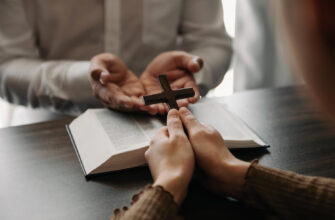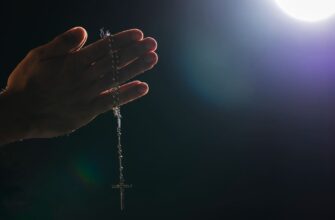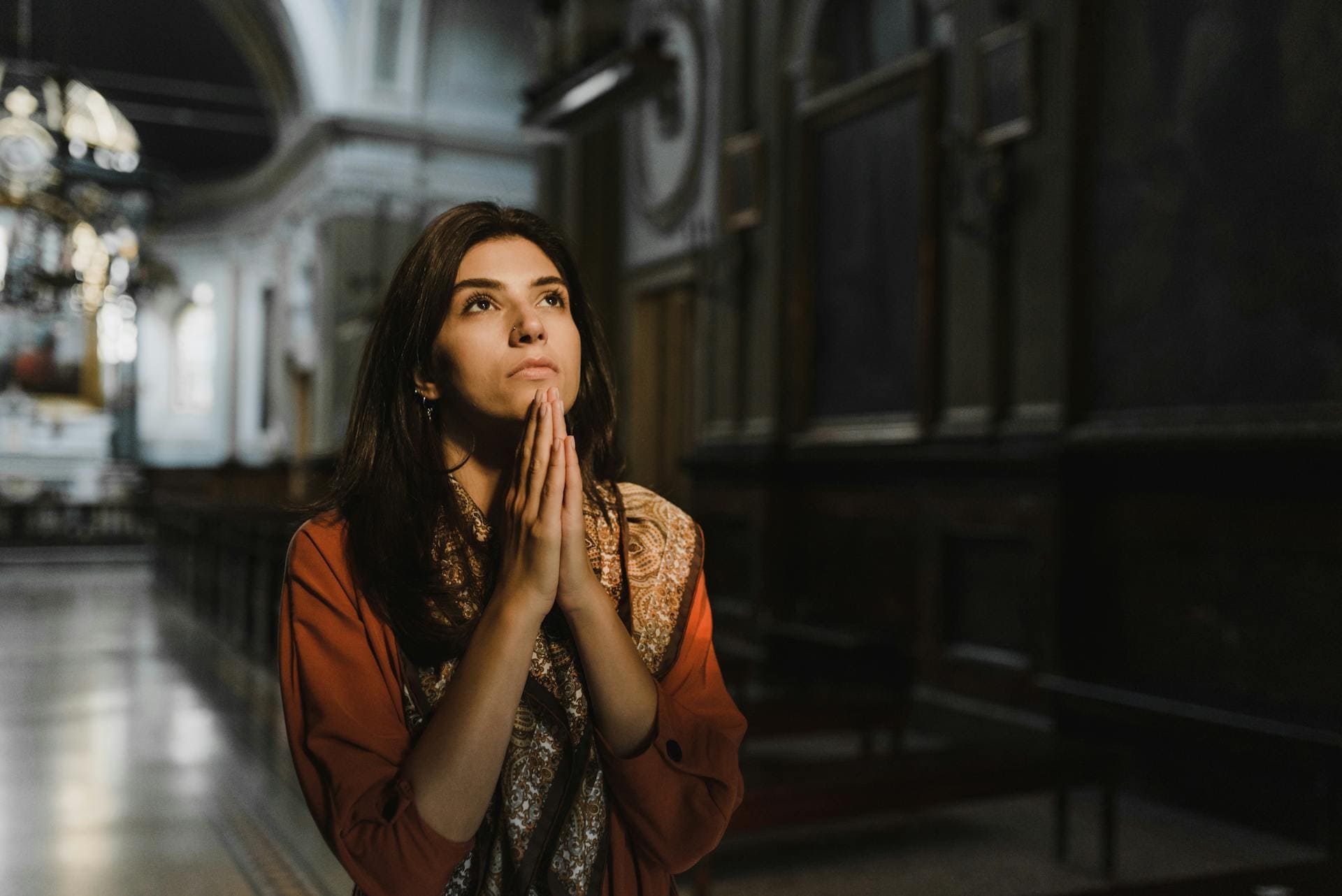Catholicism is a rich and diverse religion with a long history and many different traditions.
For Catholics, these traditions are an essential part of their faith, providing a sense of continuity, community, and spiritual nourishment.
In this ultimate guide to Catholic traditions, we will explore some of the key aspects of Catholicism, including liturgical traditions, popular devotions, saints and feast days, religious art and architecture, the hierarchy of the Catholic Church, and the seven sacraments.
- What Are Catholic Traditions?
- The Importance of Catholic Traditions
- Liturgical Traditions: The Mass, the Liturgical Year, and Sacraments
- Popular Devotions: Rosaries, Novenas, and Other Forms of Prayer
- Saints and Feast Days: Honoring the Heroes of the Faith
- Religious Art and Architecture: The Beauty of Catholicism
- The Hierarchy of the Catholic Church
- Catholic Education: Schools, Universities, and Formation Programs
- Social Justice and Charity: Living Out Catholic Values in the World
- The Seven Sacraments
- The Hierarchy of the Catholic Church
- Conclusion: The Enduring Legacy of Catholic Traditions
- Full List Of Catholic Traditions
- FAQ’s
What Are Catholic Traditions?
Catholic traditions are practices and beliefs that have been handed down over the centuries by the Catholic Church.
These traditions are deeply rooted in the history and culture of Catholicism and serve as a way for Catholics to connect with their faith and with one another.
They include a wide range of practices and beliefs, from the celebration of Mass to the veneration of saints, from the use of religious art and architecture to the performance of popular devotions.
The Importance of Catholic Traditions
Catholic traditions play a vital role in the life of Catholics, providing a way to connect with their faith, deepen their spiritual lives, and build a sense of community.
They also serve as a way to pass on the faith from one generation to the next, ensuring that the richness and beauty of Catholicism continue to be appreciated and celebrated.
Liturgical Traditions: The Mass, the Liturgical Year, and Sacraments
The Mass is the central liturgical tradition of Catholicism, and it is celebrated in churches around the world every day.
The liturgical year is also an essential part of Catholicism, with its cycle of seasons and feasts marking the major events of Jesus’ life and ministry.
The seven sacraments, including Baptism, Confirmation, Eucharist, Reconciliation, Anointing of the Sick, Holy Orders, and Matrimony, are also an integral part of Catholic liturgical tradition, marking the key moments of the Catholic life cycle.
Popular Devotions: Rosaries, Novenas, and Other Forms of Prayer
Popular devotions are a way for Catholics to deepen their faith and express their love for God and the saints.
Rosaries, novenas, and other forms of prayer are among the most popular devotions in Catholicism, providing a way for Catholics to meditate on the mysteries of the faith and seek intercession from the saints.
Saints and Feast Days: Honoring the Heroes of the Faith
The Catholic Church venerates saints as models of holiness and sources of intercession. Many saints are associated with particular feast days, which are celebrated with special Masses and devotions.
Catholics also celebrate All Saints’ Day and All Souls’ Day, remembering all of the faithful departed and praying for their souls.
Religious Art and Architecture: The Beauty of Catholicism
Religious art and architecture have played an important role in the history of Catholicism, providing a way for Catholics to express their faith and devotion.
From the grandeur of cathedrals to the beauty of stained glass windows, religious art and architecture have been used to communicate the beauty and mystery of the Catholic faith.
The Hierarchy of the Catholic Church
The hierarchy of the Catholic Church is a complex system of leaders and officials who are responsible for the governance of the Church.
At the top of the hierarchy is the Pope, who is the spiritual leader of the worldwide Catholic community.
Bishops, priests, and deacons are also part of the hierarchy, with each playing a unique role in the life of the Church.
Catholic Education: Schools, Universities, and Formation Programs
Catholic education has been an important part of Catholicism since its earliest days, with schools and universities providing a way for Catholics to learn about their faith and the world around them.
Catholic formation programs, such as RCIA (Rite of Christian Initiation of Adults) and CCD (Confraternity of Christian Doctrine), provide a way for Catholics of all ages to deepen their understanding of the faith and grow in their spiritual lives.
Social Justice and Charity: Living Out Catholic Values in the World
Social justice and charity are key values in Catholicism, with Catholics encouraged to work for the common good and to help those in need.
The Catholic Church has a long history of involvement in charitable work, with organizations such as Catholic Charities and Caritas Internationalis providing aid and support to people in need around the world.
The Seven Sacraments
The seven sacraments are central to Catholicism, providing Catholics with a tangible way to experience and express their faith.
Baptism is the first sacrament, marking the beginning of the Catholic life cycle, and Confirmation strengthens Catholics in their faith.
The Eucharist, also known as Communion, is the centerpiece of Catholic liturgy, providing Catholics with a way to experience the presence of Christ in their lives.
Reconciliation, also known as Confession, provides Catholics with a way to confess their sins and receive forgiveness.
The Anointing of the Sick provides Catholics with spiritual healing and comfort during times of illness or suffering.
Holy Orders, which include the ordination of priests and deacons, provide Catholics with pastoral leadership and guidance, while Matrimony provides Catholics with a sacramental way to express their love and commitment to one another.
As Catholics continue to celebrate and honor these sacraments, they ensure that the richness and beauty of Catholicism will continue to inspire and uplift generations to come.
The Hierarchy of the Catholic Church
The hierarchy of the Catholic Church is a complex system of leaders and officials who are responsible for the governance of the Church.
At the top of the hierarchy is the Pope, who is the spiritual leader of the worldwide Catholic community.
Bishops, priests, and deacons are also part of the hierarchy, with each playing a unique role in the life of the Church.
Conclusion: The Enduring Legacy of Catholic Traditions
Catholic traditions are a rich and varied tapestry of practices and beliefs that have been passed down through the centuries.
From liturgical traditions and popular devotions to the hierarchy of the Catholic Church and the seven sacraments, these traditions are an essential part of Catholicism, providing a way for Catholics to connect with their faith, deepen their spiritual lives, and build a sense of community.
As Catholics continue to celebrate and honor these traditions, they ensure that the richness and beauty of Catholicism will continue to inspire and uplift generations to come.
In conclusion, Catholic traditions are a fundamental aspect of Catholicism, providing a way for Catholics to connect with their faith, deepen their spiritual lives, and build a sense of community.
From liturgical traditions and popular devotions to the hierarchy of the Catholic Church and the seven sacraments, these traditions are an essential part of Catholicism’s legacy, inspiring and uplifting Catholics for centuries.
As we continue to honor and celebrate these traditions, we ensure that the beauty and richness of Catholicism will endure for generations to come.
Full List Of Catholic Traditions
Here’s a list of Catholic traditions that are commonly practiced:
- The Mass
- The Liturgical Year
- The Seven Sacraments: Baptism, Confirmation, Eucharist, Reconciliation, Anointing of the Sick, Holy Orders, and Matrimony
- The Sign of the Cross
- Holy Water
- Adoration of the Blessed Sacrament
- The Rosary
- Novenas
- Devotion to Mary and the Saints
- Veneration of Relics
- Pilgrimages
- Fasting and Abstinence
- Religious Art and Architecture
- The Hierarchy of the Catholic Church: Understanding the Roles of the Pope, Bishops, Priests, and Deacons
- Catholic Ethics and Morality: Living a Virtuous Life
- Social Justice and Charity: Living Out Catholic Values in the World
- Catholic Education: Schools, Universities, and Formation Programs
- Religious Orders and Communities: Living Out the Catholic Faith
FAQ’s
Catholic traditions are practices and beliefs that have been passed down through the centuries by the Catholic Church. These traditions are deeply rooted in the history and culture of Catholicism and serve as a way for Catholics to connect with their faith and with one another.
Catholic traditions play a vital role in the life of Catholics, providing a way to connect with their faith, deepen their spiritual lives, and build a sense of community. They also serve as a way to pass on the faith from one generation to the next, ensuring that the richness and beauty of Catholicism continue to be appreciated and celebrated.
Some Catholic traditions, such as the celebration of the Mass and the seven sacraments, are considered essential to the practice of the Catholic faith. Other traditions, such as popular devotions and customs, are optional and vary depending on cultural and regional influences.
While some Catholic traditions, such as the reception of the sacraments, are reserved for Catholics in good standing with the Church, many other traditions, such as the celebration of feast days and the use of religious art and architecture, are open to all people regardless of their religious affiliation.
Yes, Catholic traditions have evolved over time in response to changing social, cultural, and historical contexts. While the core teachings and practices of Catholicism remain the same, the way that these traditions are expressed and celebrated may change over time.
Tradition is a key aspect of Catholicism, serving as a way to connect Catholics with their faith, deepen their spiritual lives, and build a sense of community. Tradition also helps to ensure the continuity and coherence of Catholic teachings and practices across time and space.
Like any religion, Catholicism has had its share of controversies and debates over the centuries, including disagreements over the interpretation and implementation of certain traditions. However, many Catholics believe that these controversies are a natural part of the Church’s evolution and growth, and that they can lead to a deeper understanding and appreciation of Catholic traditions.







